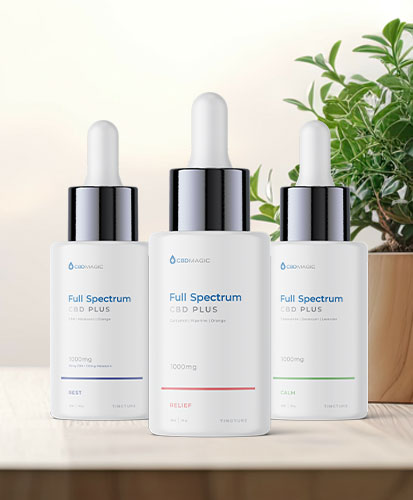- You have no items in your shopping cart
- Continue Shopping

Cannabidiol, or CBD, has skyrocketed in popularity as a natural remedy for various ailments. From anxiety to chronic pain, people are turning to this compound found in the cannabis plant for its potential therapeutic benefits. However, when it comes to CBD and pregnancy, caution is the name of the game. In this article, we’ll delve into what you need to know about using CBD during pregnancy, examining the science, potential risks, and the elusive benefits.
What is CBD?
Let’s start with the basics. Cannabidiol, commonly known as CBD, is one of over a hundred chemical compounds found in the cannabis plant. Unlike its infamous cousin, THC (tetrahydrocannabinol), CBD is non-psychoactive, meaning it won’t get you high. It comes in various forms, including CBD oils, capsules, edibles, and topicals, making it accessible to a broad audience.
The Endocannabinoid System (ECS) and Pregnancy
Now, let’s talk about the body’s built-in regulatory system – the endocannabinoid system (ECS). This complex network of receptors plays a crucial role in maintaining balance and harmony within the body. During pregnancy, the ECS is involved in regulating various physiological processes, including implantation of the embryo. The interaction between CBD and the ECS during pregnancy is a topic of growing interest among researchers, raising questions about its potential impact on fetal development.
Safety Concerns and Risks
The safety of using CBD during pregnancy is a hotly debated topic, and understandably so. While some studies suggest that CBD is generally well-tolerated in adults, there’s a scarcity of research specifically focused on pregnant individuals. Concerns linger about potential risks, including how CBD might cross the placenta and affect the developing fetus. It’s a complex puzzle, and the pieces are still being put together.
Potential Benefits of CBD During Pregnancy
Navigating the realm of potential benefits, CBD during pregnancy may offer relief from common discomforts. Here’s a glimpse into how it could positively impact expecting individuals:
- Alleviating Nausea: Some reports suggest that CBD may help ease the notorious morning sickness, providing much-needed relief during the early stages of pregnancy.
- Managing Anxiety: Pregnancy can bring about heightened stress and anxiety. CBD’s purported anxiolytic properties may offer a natural way to promote a calmer state of mind.
- Pain Relief: For those experiencing pregnancy-related pains such as backaches or joint discomfort, CBD’s anti-inflammatory properties might provide relief without resorting to traditional pain medications.
- Improving Sleep Quality: CBD’s potential to regulate sleep patterns may contribute to better sleep quality, crucial for the well-being of both the expectant individual and the growing baby.
While these potential benefits are intriguing, it’s essential to approach CBD use during pregnancy with caution and consult with healthcare professionals for personalized guidance.
Legal and Regulatory Landscape
In Canada, the legality of CBD is intricately woven into the broader cannabis regulatory framework. CBD derived from industrial hemp, containing less than 0.3% THC, is legal for both medical and recreational use. The Cannabis Act, implemented in 2018, governs the production, distribution, and sale of cannabis products, including CBD. This legislation allows adults to purchase and possess CBD products from authorized retailers. However, it’s crucial to note that CBD products derived from marijuana plants with higher THC content remain subject to stricter regulations and are typically accessible only through the medical cannabis system. As with any legal landscape, it’s advisable to stay updated on regulations, ensuring compliance with local laws when navigating the world of CBD in Canada.
Expert Opinions and Healthcare Provider Guidance
In the quest for clarity, consulting healthcare professionals is paramount. Obstetricians and gynecologists, armed with medical expertise, can provide personalized guidance based on an individual’s health history and specific circumstances. The consensus among experts emphasizes the importance of erring on the side of caution. Until more research is available, pregnant individuals are encouraged to prioritize the health and well-being of both themselves and their unborn child.
Conclusion
As the CBD craze continues, it’s essential to approach its use during pregnancy with a discerning eye. While the potential benefits may be enticing, the lack of conclusive evidence and potential risks warrant a cautious approach. The dynamic relationship between CBD and pregnancy is an evolving field of study, and future research may shed more light on this intriguing topic. In the meantime, pregnant individuals should prioritize open communication with healthcare providers and make informed decisions that prioritize the safety of both themselves and their developing babies.
Ready to step into the wonderful world of CBD? Shop online today at CBD2HEAL for Canada’s best CBD oil!









